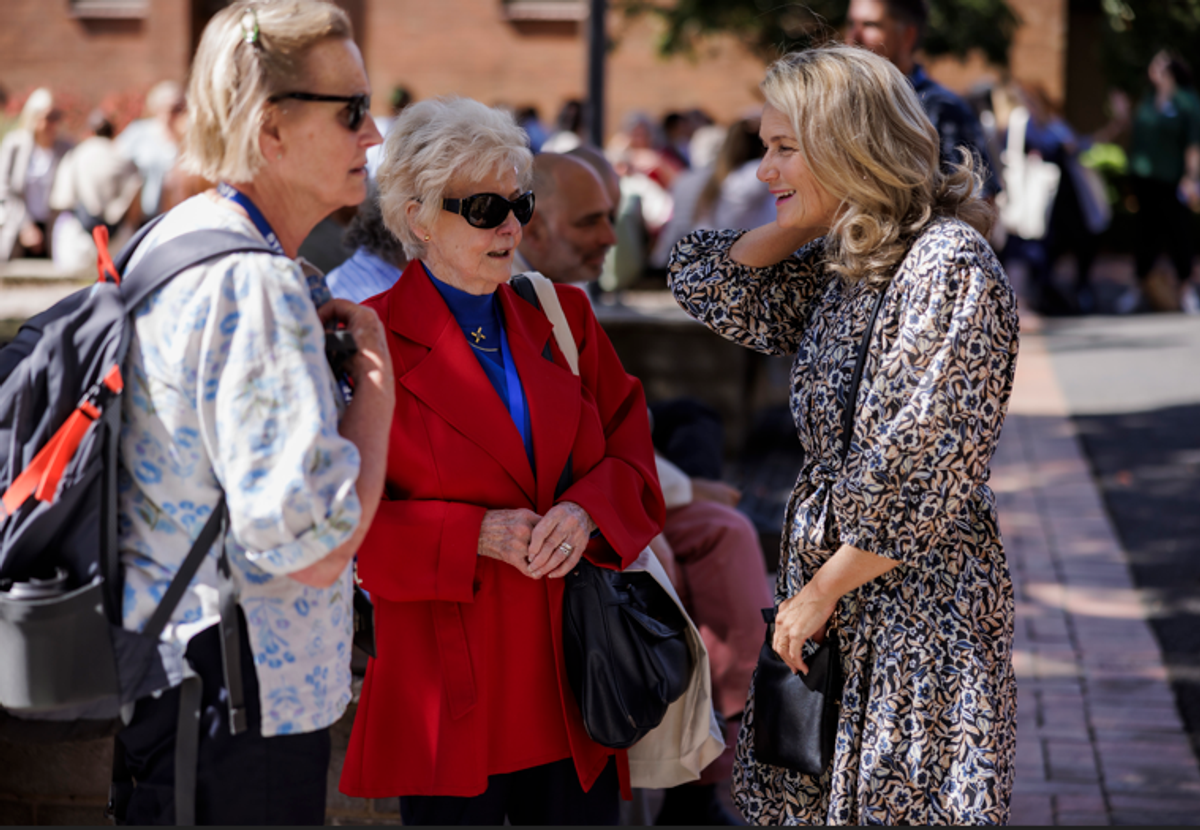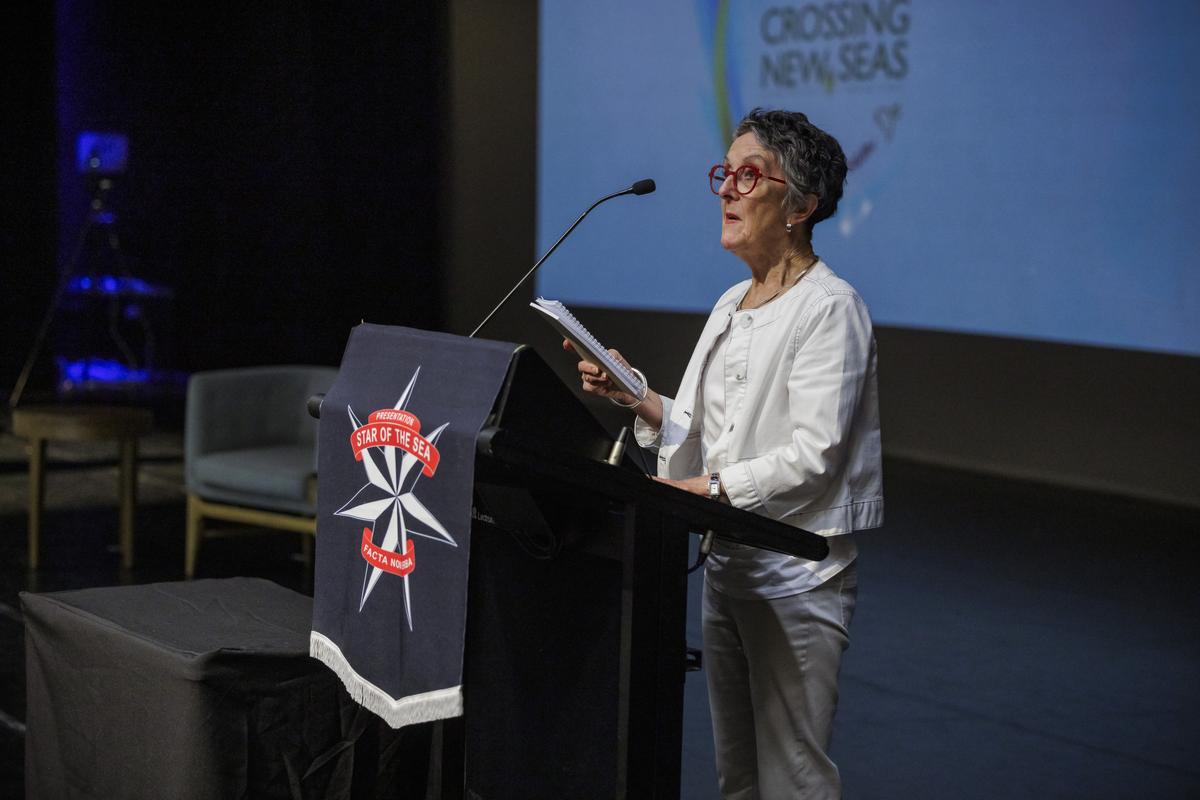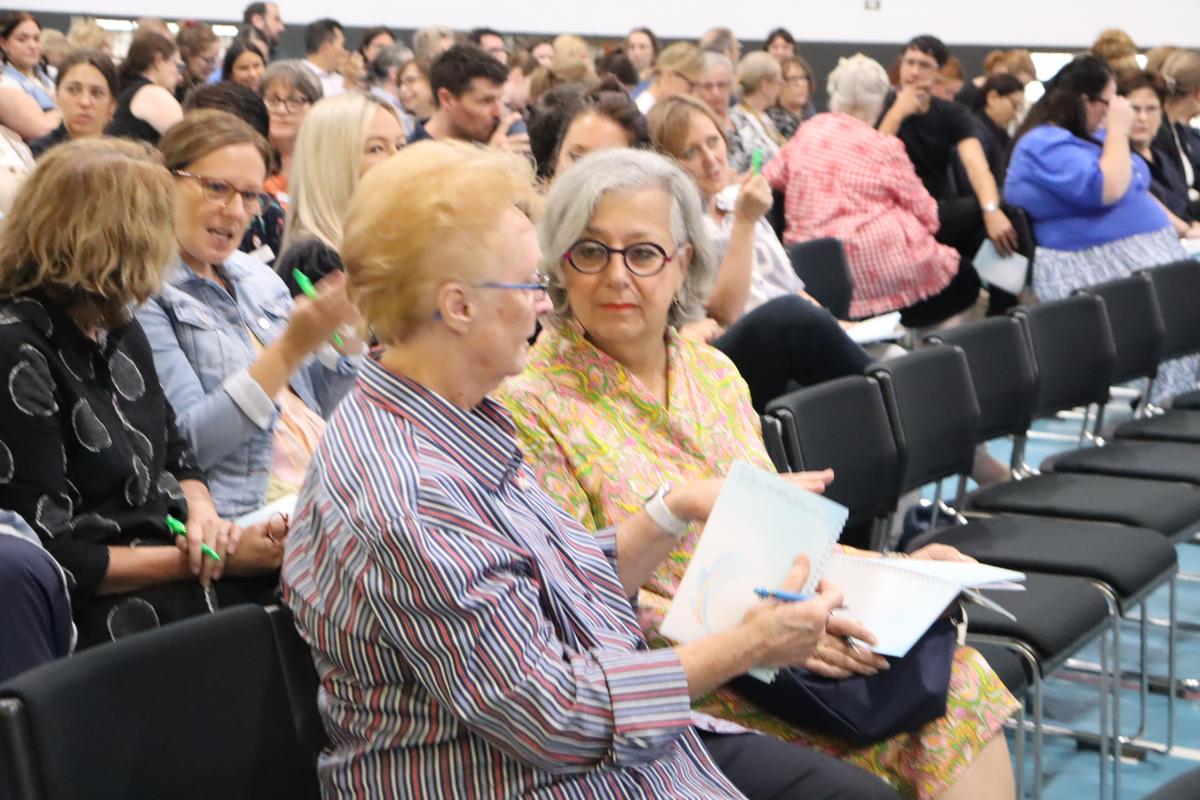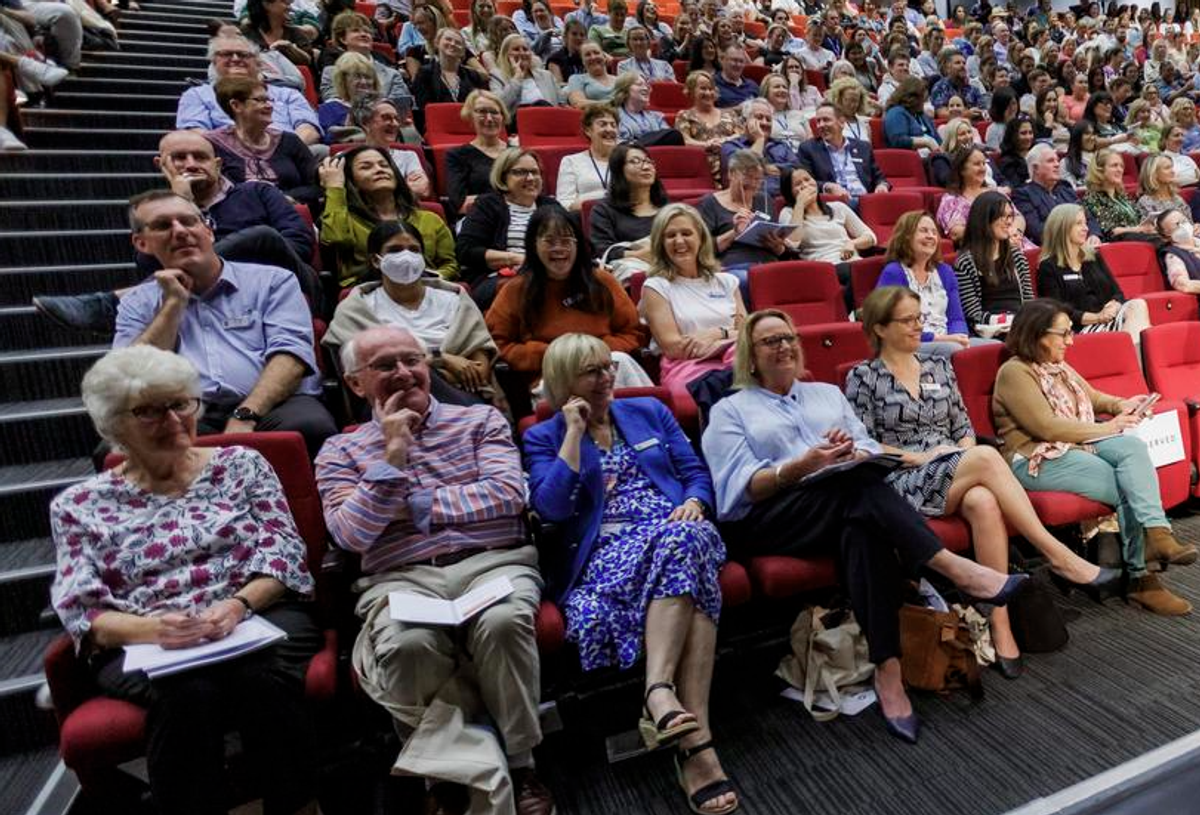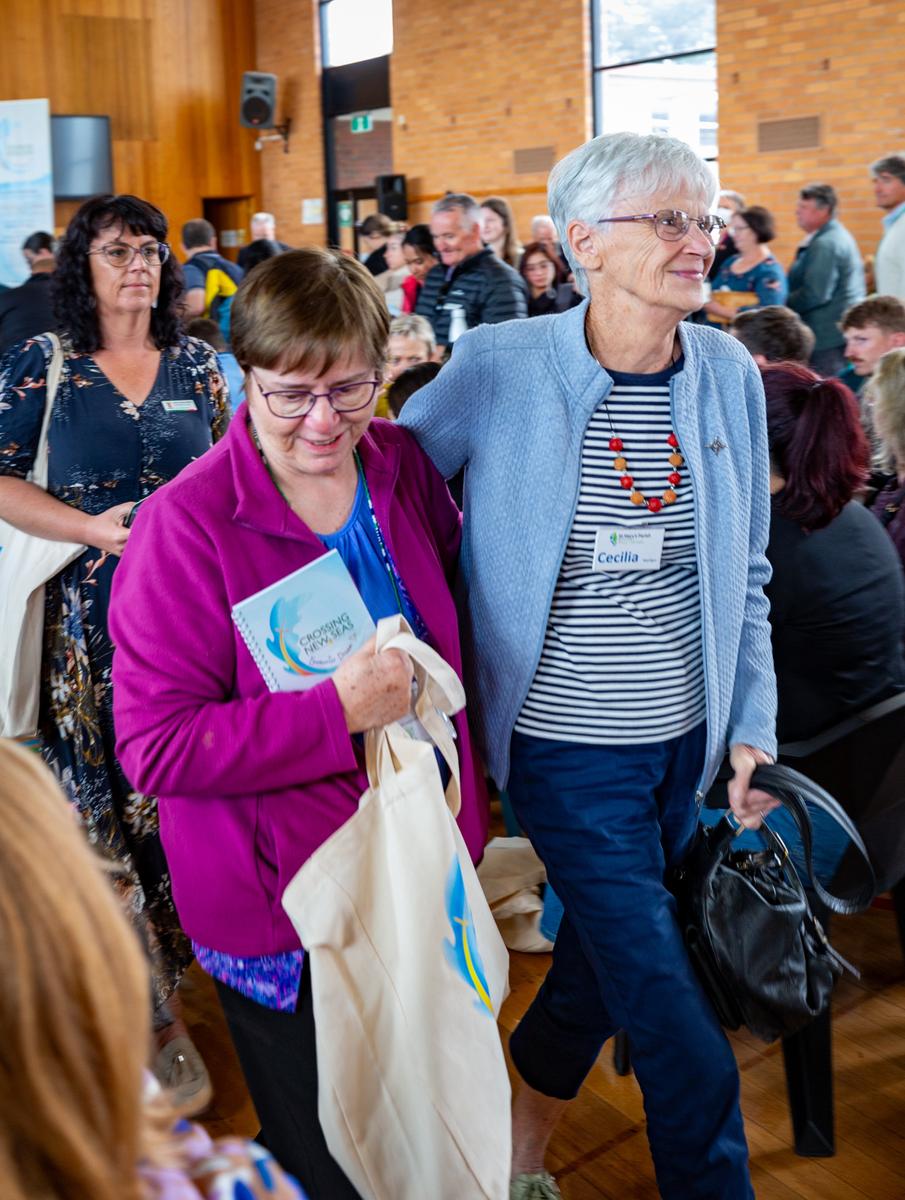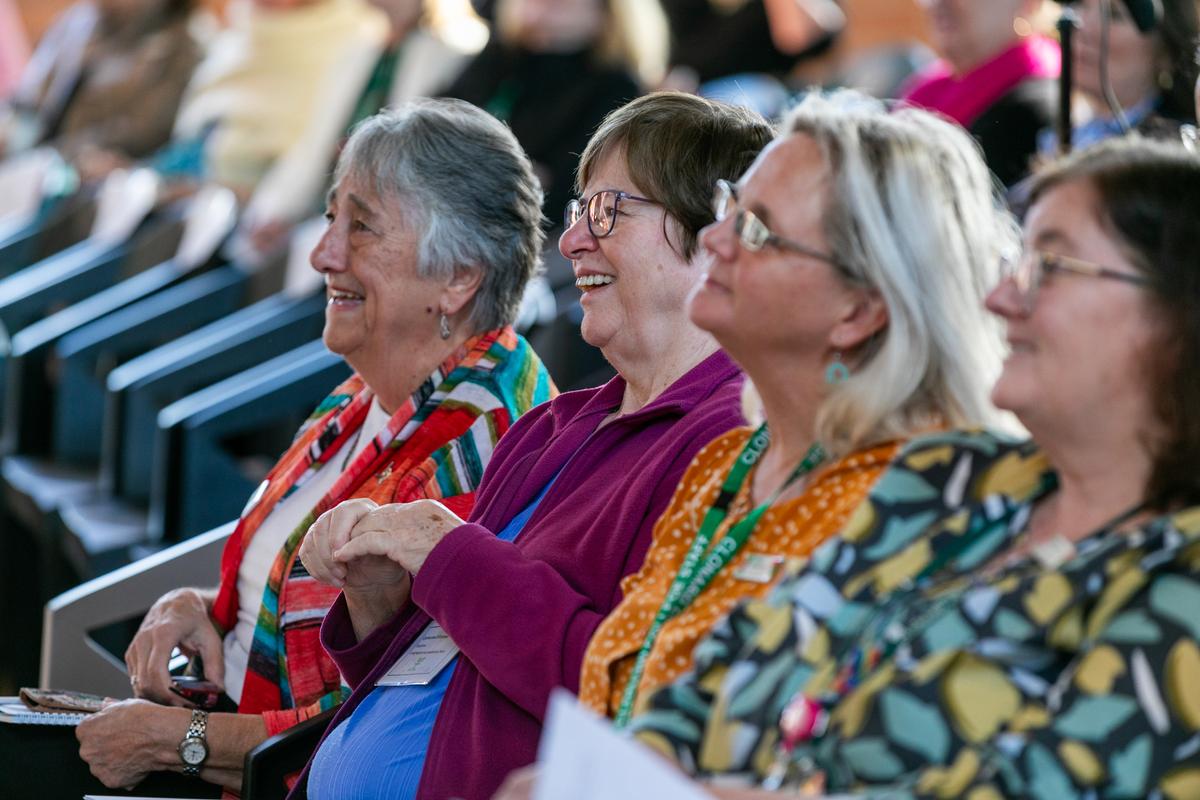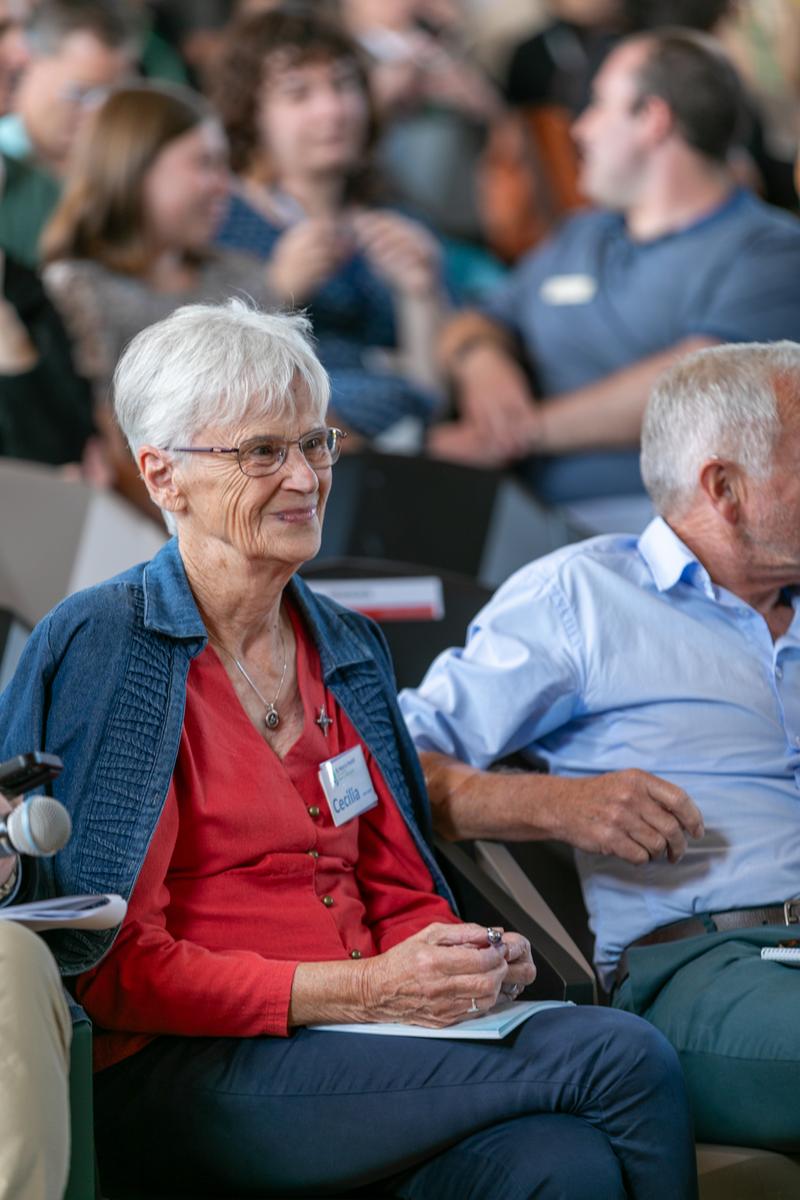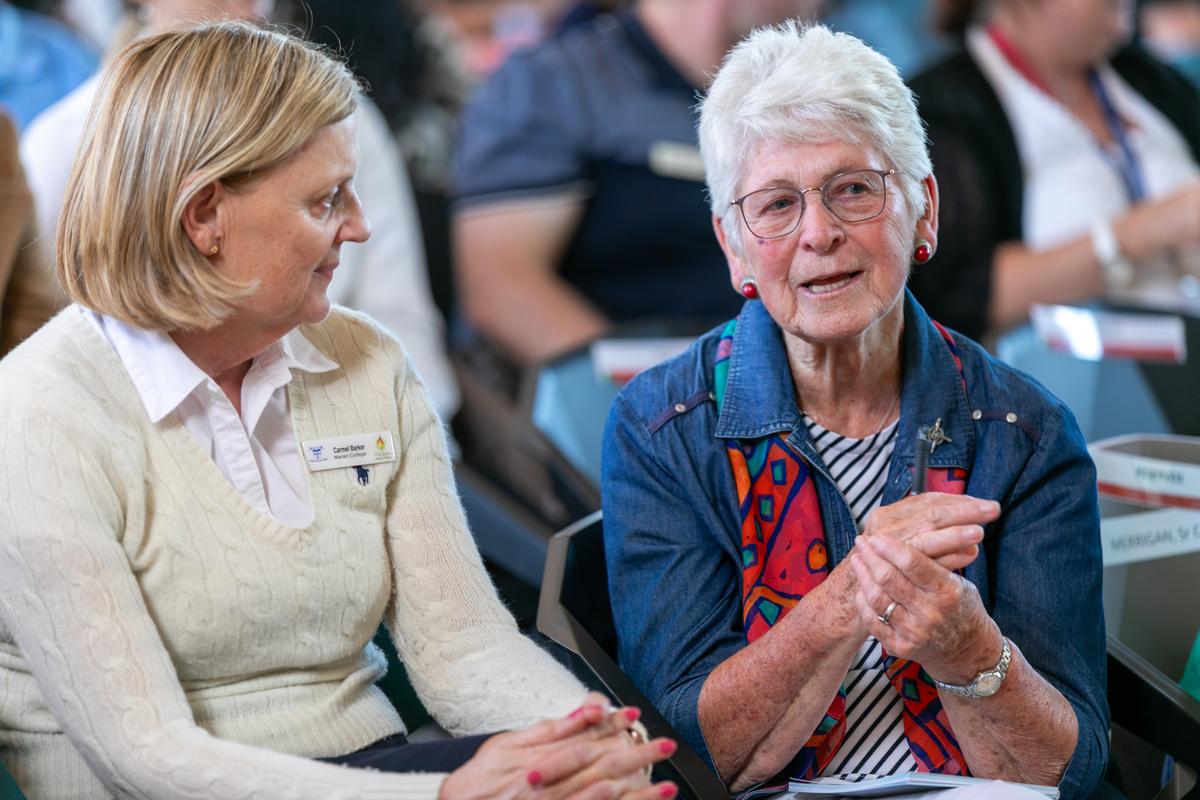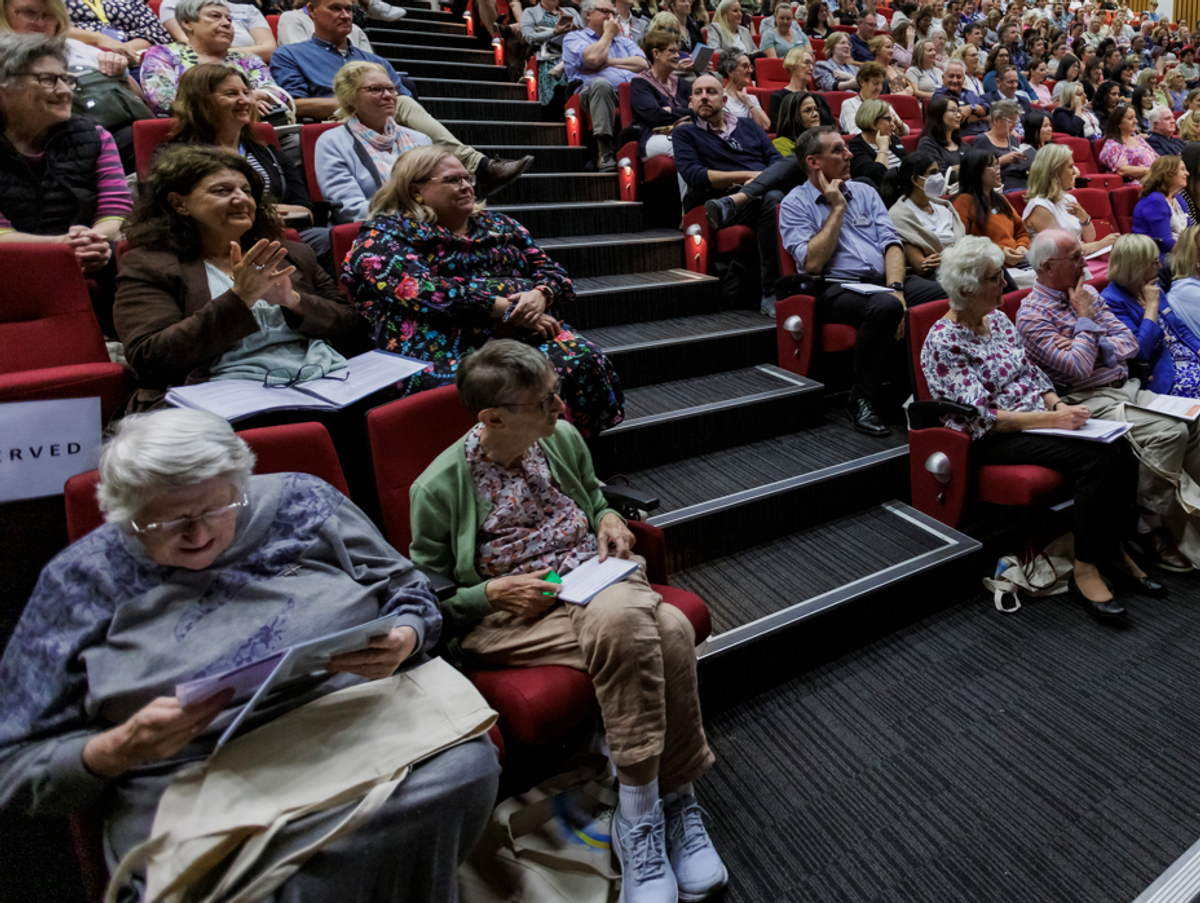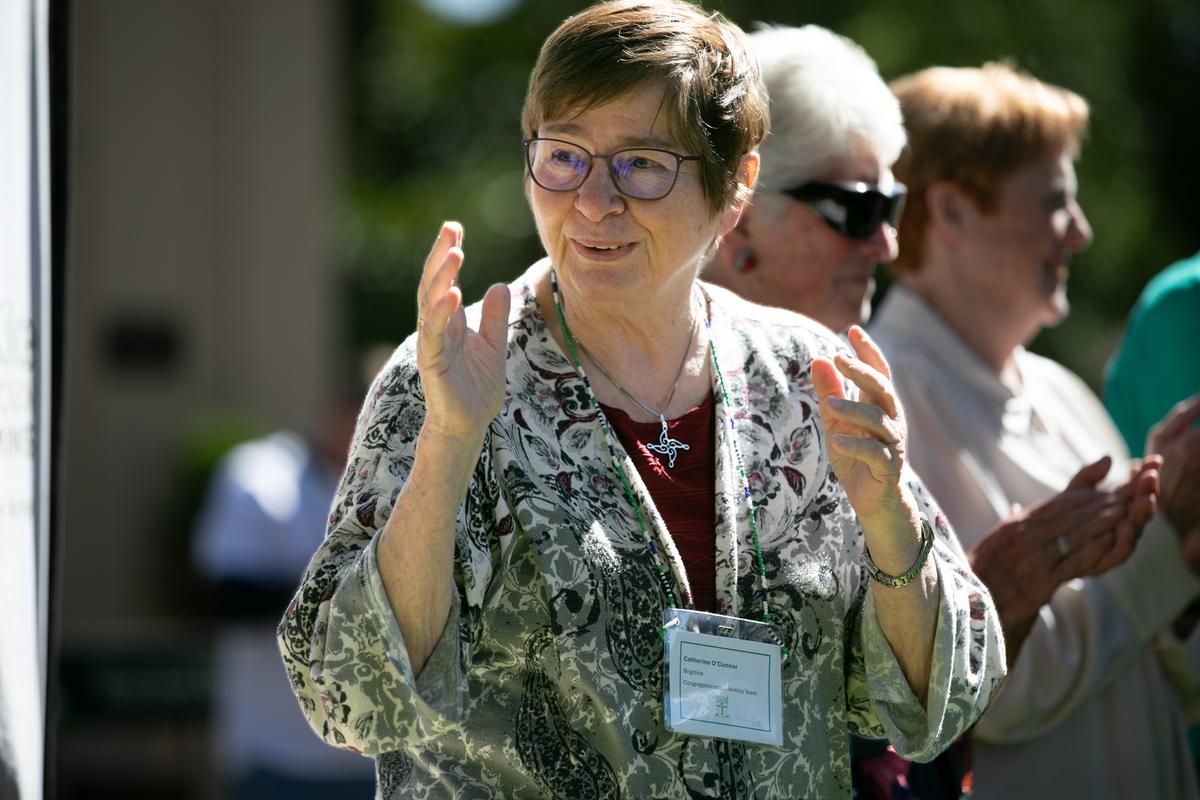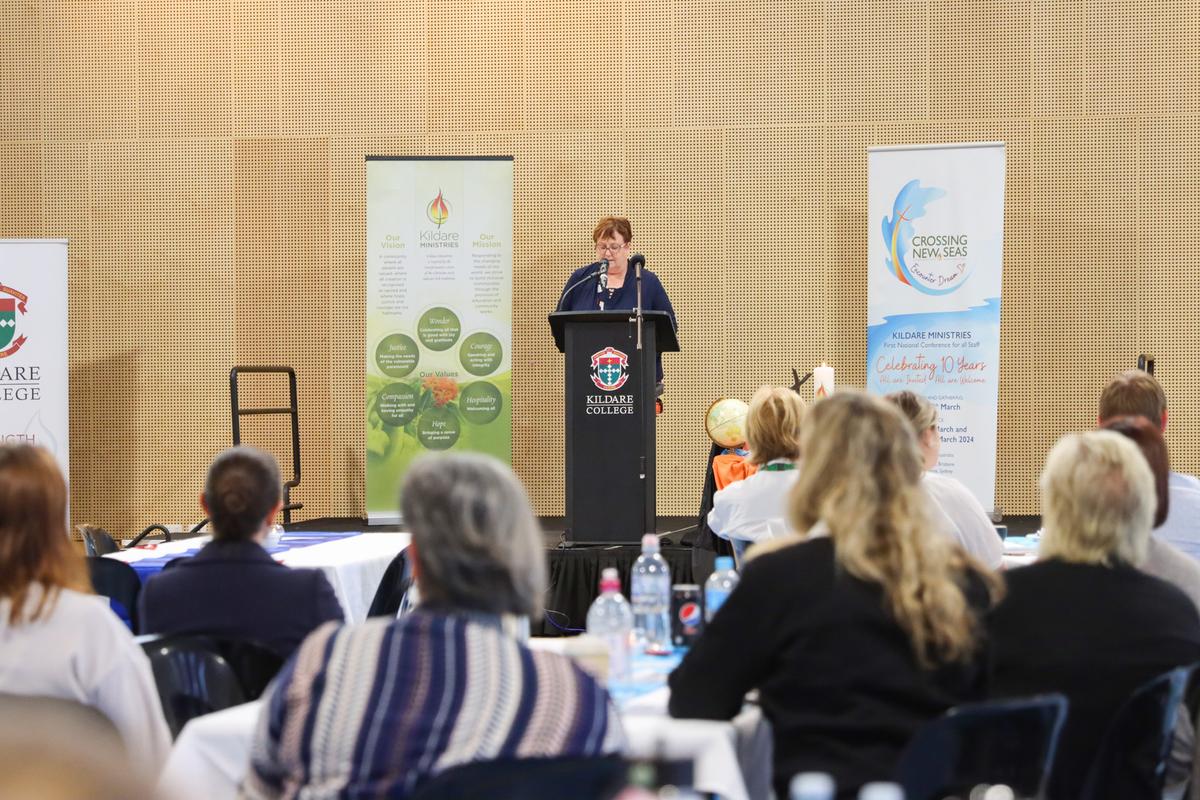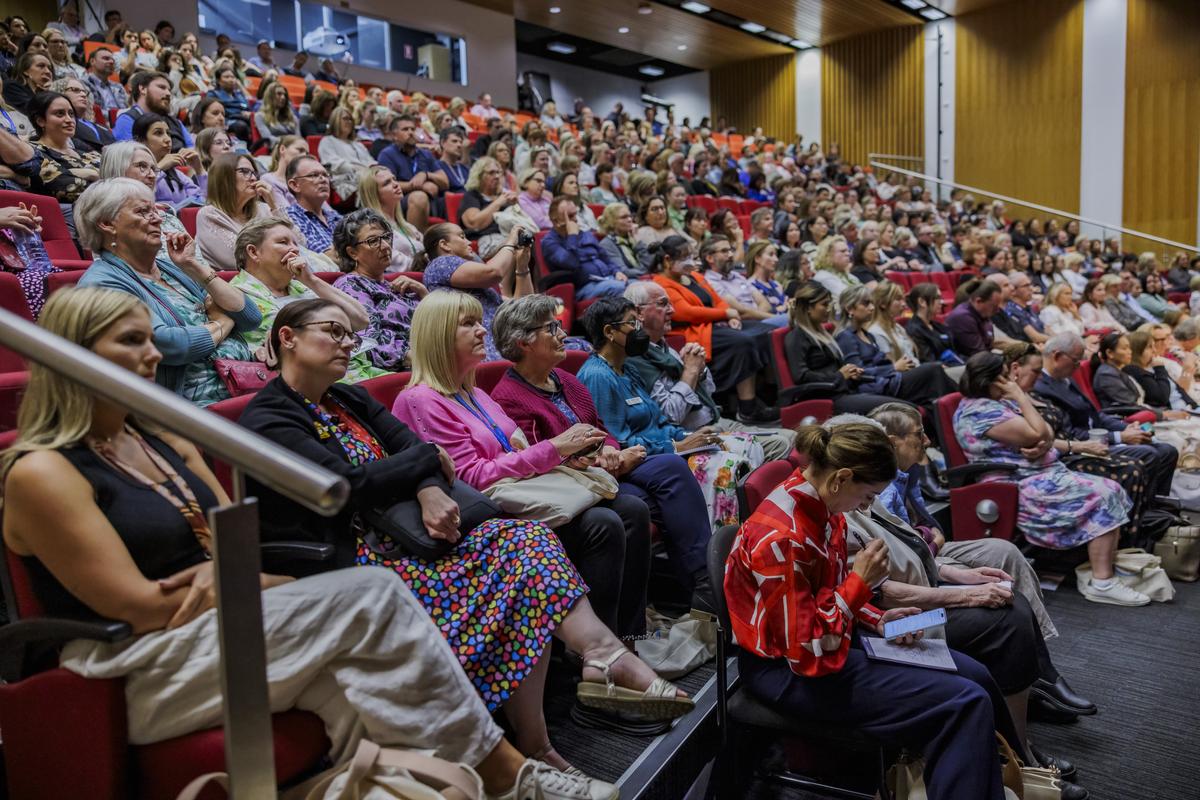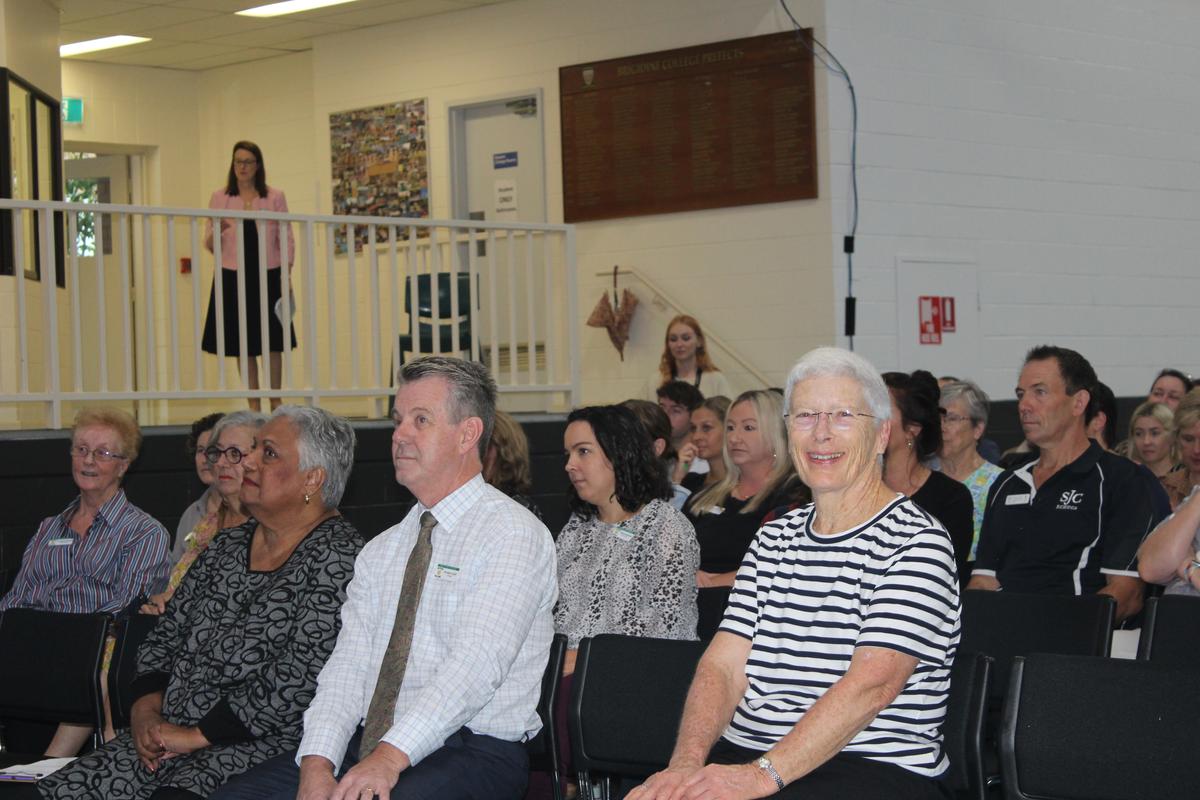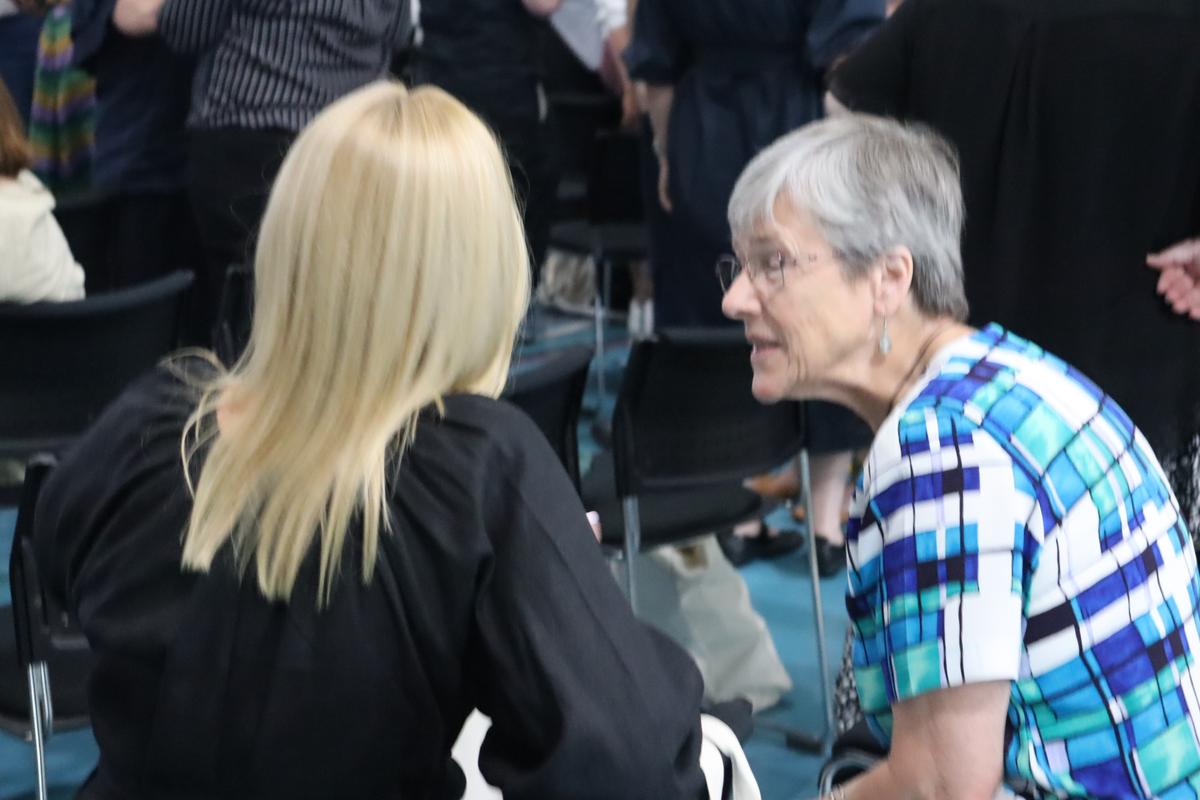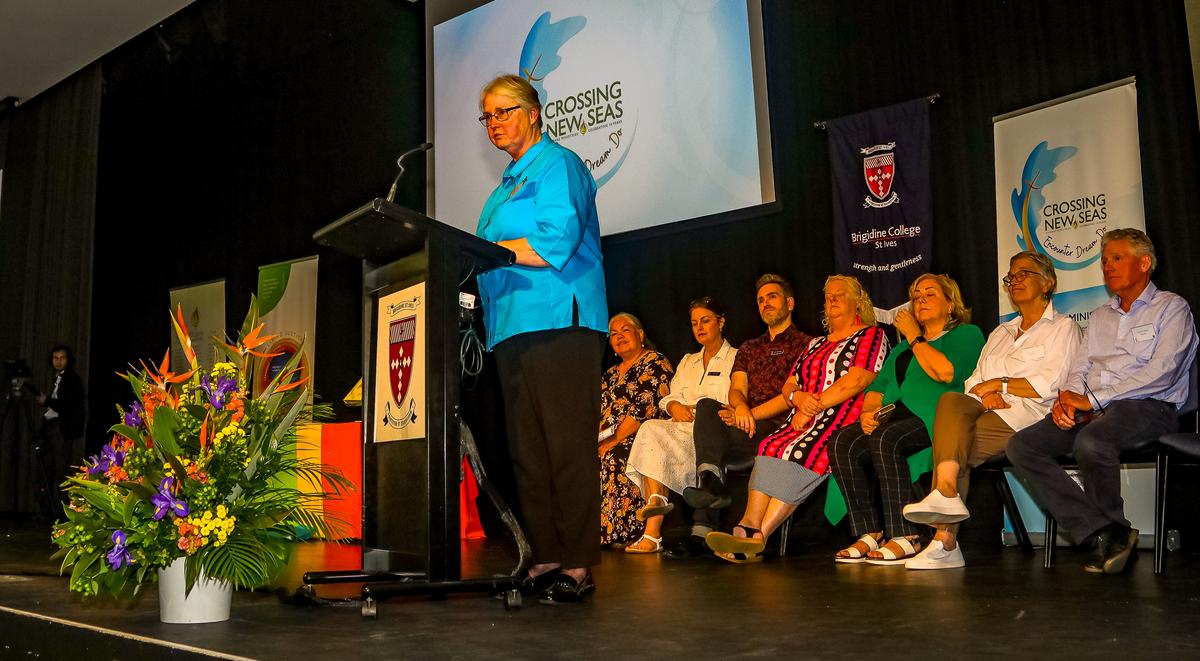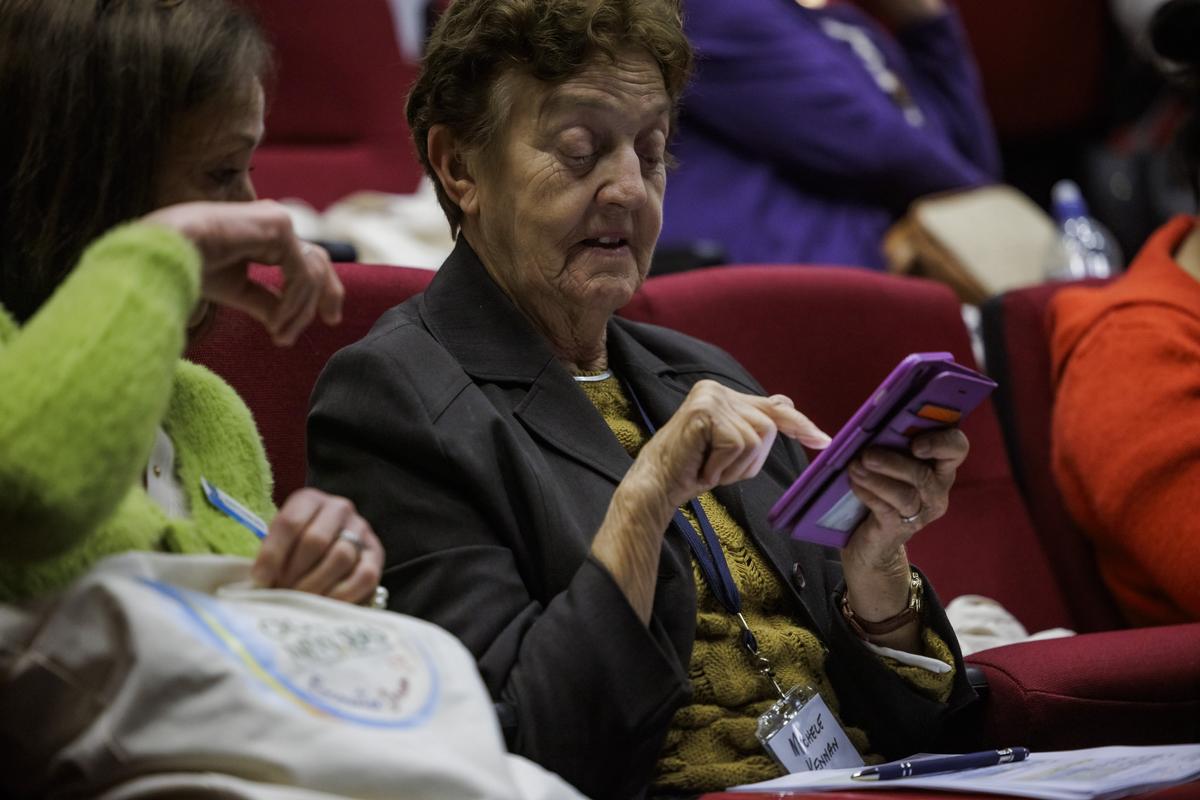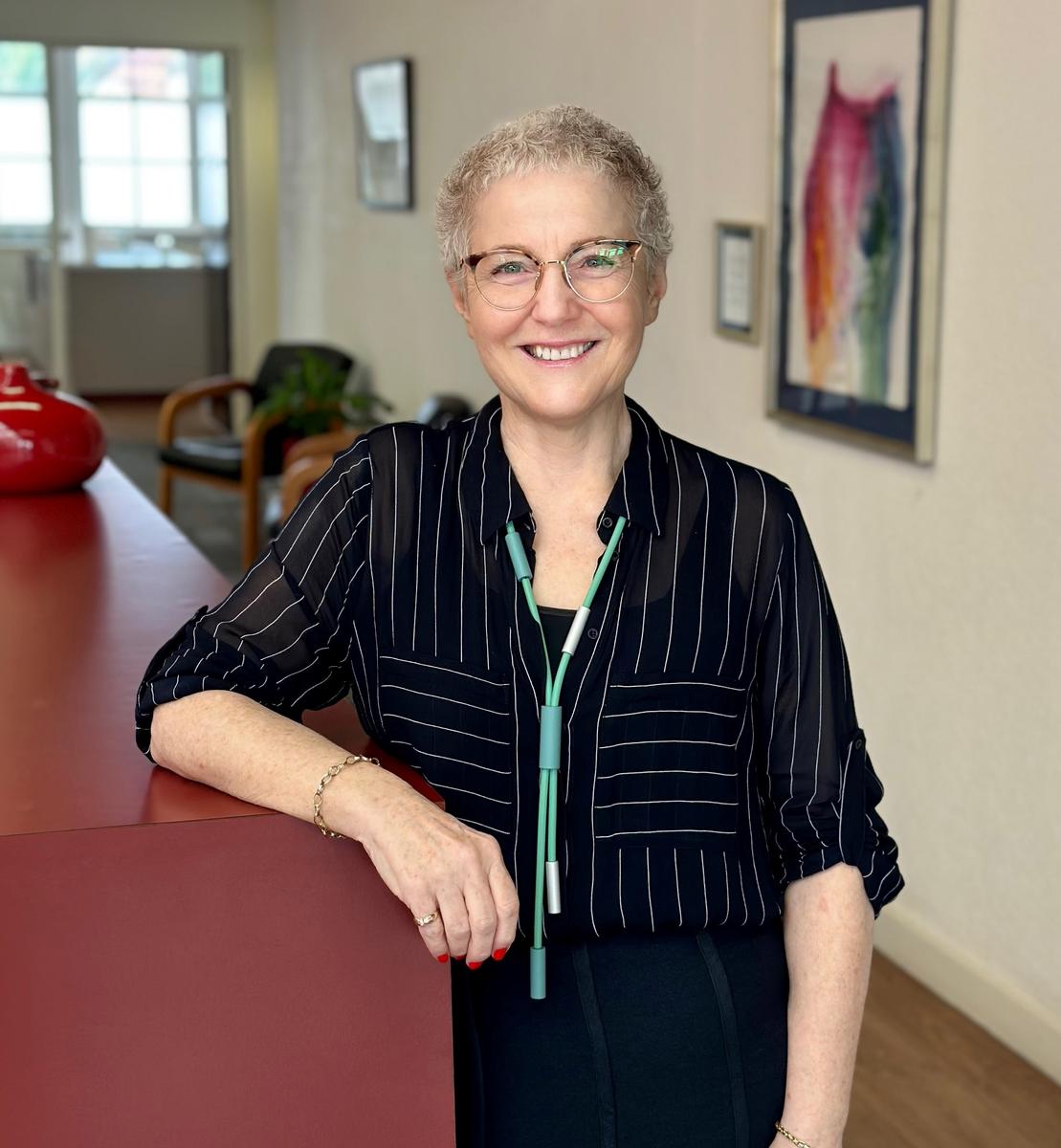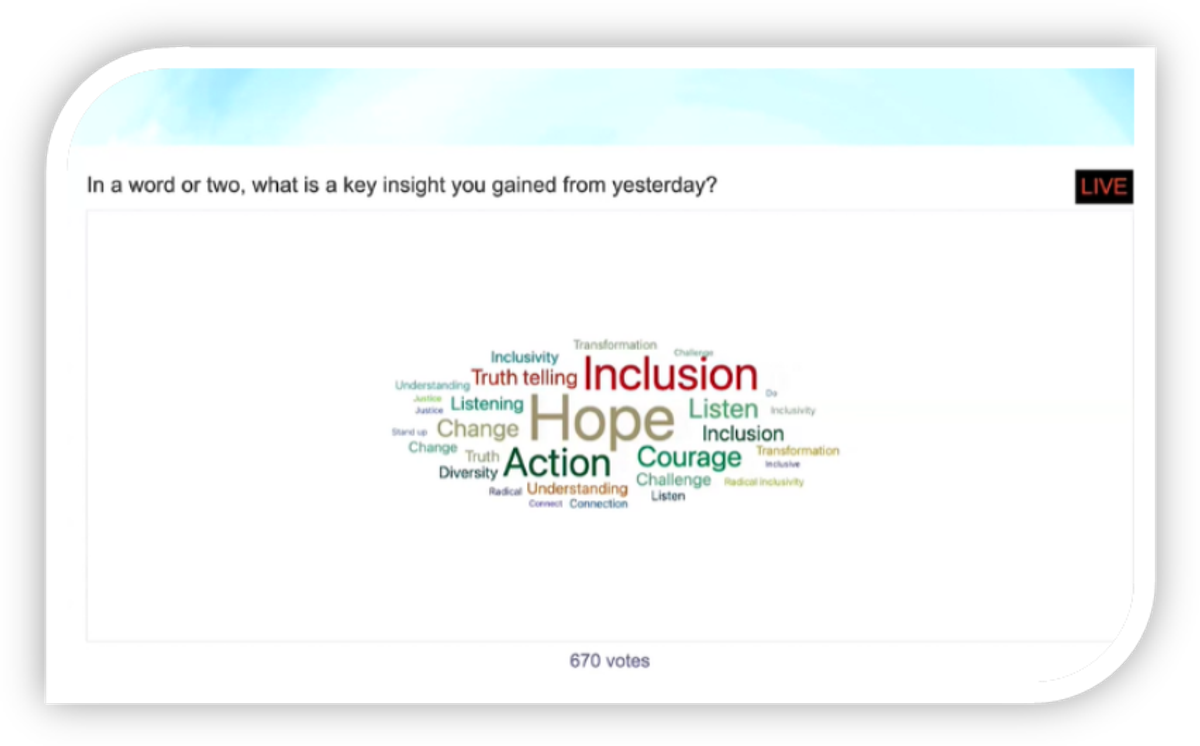Editorial
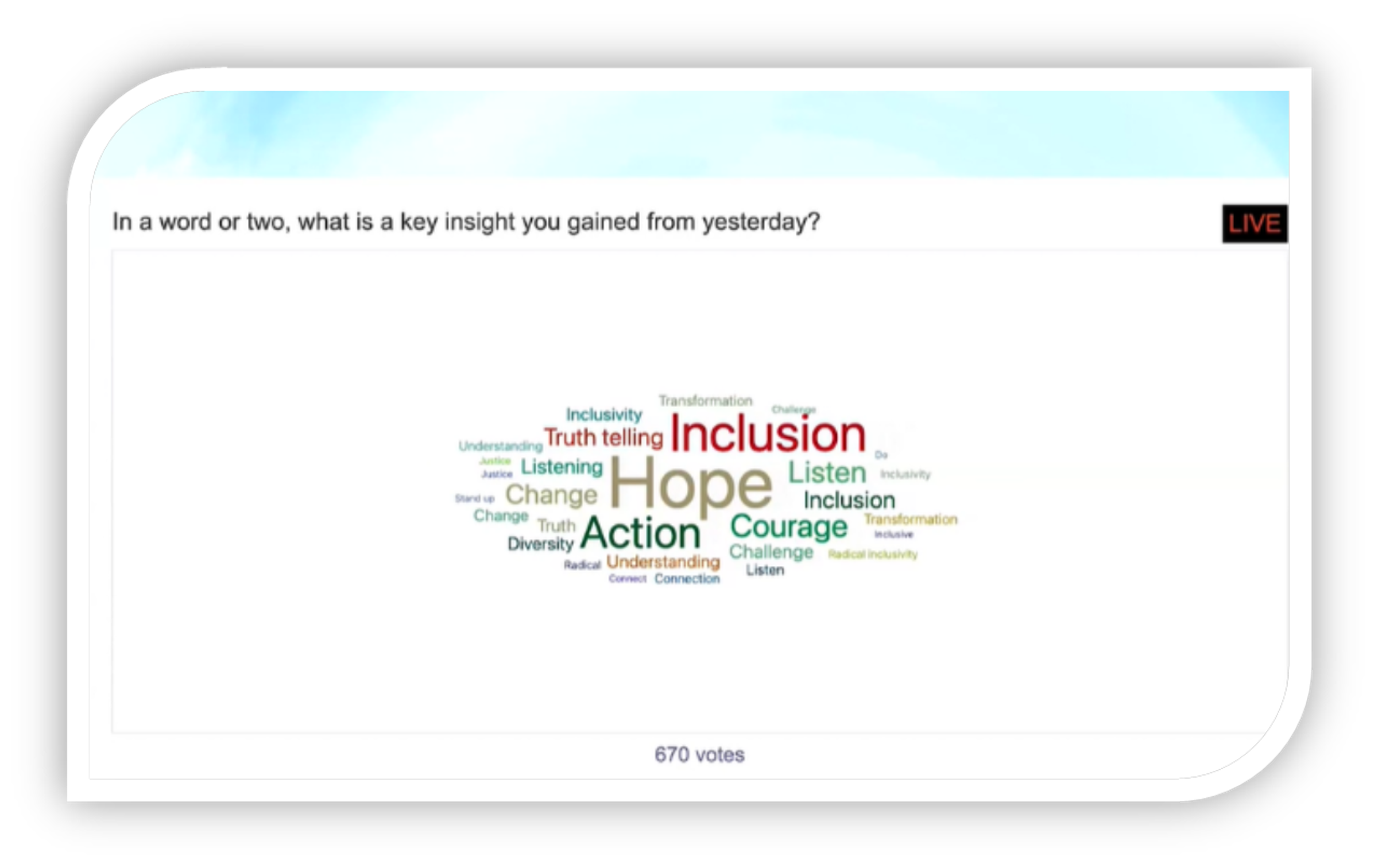
Newsletter
Dear friends
It is already six weeks since we gathered for our 10th Anniversary Conference and its strong impact and messages remain with me. Judging by your feedback, the Conference was a phenomenal success , beyond the expectations of some. We thank you all for your participation and engagement and for your contributions which we will continue to explore for many months ahead.
The five hubs reported a sense of connectedness and belonging to each other, a sense of joy and celebration and a feeling of wonder as we develop in our understanding that Kildare Ministries can be a force for justice and peace if we continue to work together towards transformation.
You told us that you were excited to be together, to share this unique opportunity with each other and that you appreciated and understood more fully the challenges and joys of our work. The conference gave us opportunities to understand each other better; to listen more deeply to the difficulties that some people in our society face every day and to be inspired by the transformative vision of our Christian story and our Kildare Ministries Mission, Vision and Values. In our shared purpose, we dared to dialogue about a more compassionate world and in the words of Fr Richard Leonard, a more ‘radically inclusive’ society.
In many ways the Conference attempted to reflected in part, the truth of who we are in Australia in 2024. We heard the message of the need for ‘truth telling, repair and healing’ before we can be truly ‘transformational’. Dr Anne Pattel-Gray, Emeritus Professor Gillian Triggs, Emeritus Professor John Warhurst, Francis Sullivan, Dr Elissa Roper and Fr Richard Leonard each invited us to encounter and to recognise the brokenness that exists in our society.
Truths were told about the current needs and dreams of our First Nations People; of the global impact of the unprecedent relocation of people across the global and of emerging issues that confront us in ecology and regeneration, artificial intelligence and mental health.
We heard heart wrenching stories about the struggles that our First Nations youth face each day at school and in their lives; stories about those who have suffered abuse at the hands of our Church and of the 140 million displaced people in our world, only a fraction who come to our shores in search of freedom and liberty but are sadly met with suspicion, disdain and fear.
We heard that despite qualifications and experience that can outstrip many of the clergy, women are not fully recognised as theologians or equal contributors to biblical interpretations and prophetic action and perhaps disappointedly we heard again that rather than becoming more inclusive, our Church, examined by the language it uses, remains deeply unequal. The complementarity of the roles of women and men seems to highlight difference and to maintain exclusions, rather than equality and inclusion. These are some of the truths told to stir our hearts and to open our minds towards healing and action.
Transformation requires a conversion of the heart, a determination to make a difference that really matters. Celebrated Aboriginal elder, theologian and author, Dr Anne Pattel-Gray, invited us into her dream for the future, “we dream of a time where our children can be safe and when our epistemologies, culture, cosmology and ancestral narratives can be taught as part of the core curriculum in all Australian schools”, she said. Can our schools be transformational institutions which examine systemic racism and take a prophetic stand for justice by confronting the generational injustices that our First Nations people have endured?
Wellsprings for Women, the Brigidine Asylum Seeker Project and Saltbush Balnarring Beach model transformational work. We heard inspirational healing stories, about the importance of deep listening to understand the impact of historical wounds of abuse and trauma and the importance of being beacons of light and hope when everything seems to be working against hope.
In John 8:31-33, Jesus said to the Jews who had believed in him, If you continue in my word, you are truly my disciples, and you will know the truth, and the truth will make you free. These words of hope and encouragement turned our commitment to the transformative action of God in our lives. Your input through the Kildare Ministries Voice AP also called our community to action. You told us that we need to turn our aspirations and hope for the future into tangible steps to address injustices and to deepen our Kildare Ministries vision, mission and values through prophetic distribution and positive disturbance.
Working together guided by wisdom, faith and love may we continue to shape our collective path towards a more compassionate world. We have heard, pondered, now let us act!
Special Mention
Kildare Ministries thanks the Brigidine Sisters and the Presentation Sisters for their very generous donations towards the conference. Their financial support ensured that all members of our community could be present, making this our first truly inclusive conference. It was also a delight to see so many of our Sisters join us and to take such a keen interest in the development of Kildare Ministries’ future.
Erica Pegorer
Executive Director
Kildare Ministries
The Kildare Ministries Voice:
In the coming months we will share with you in more detail the feedback you provided regarding the conference. Below are only six random responses to whet your appetite:-
On the question about what was heard at the end of day 1:
Other interesting comments included:
- Students value programs that connect year levels
- What I didn’t hear was insight from students who have challenges learning, and how we could better collaborate with their needs and aspirations
- Schools are more about shaping identities than textbooks
- I think the students need to hear the Trustees statements and strategic intentions so they know this is our work for mission our expression of Church - this is something they would sign up for
- It is very evident that the young people do not see the differences or have the intolerances of our older generations. This is reassuring to see and provides so much hope for the future.
- the students love the sense of what unites them can we give them more opportunities to come together to sustain, inspire and encourage them in their work for justice and peace
Question 2: In what ways can we connect with each other to help address issues of social justice and peace, especially with our community works?
- Each school taking responsibility for the rent or upkeep of one house (guided by BASP and Saltbush)
- KM to provide working conditions that allow staff to give their time to CWs
- Teach advocacy skills
- Widen the circle – connect to Indigenous leaders to inform and implement cross curricula indigenous studies.
- Is there scope to develop a 4th Community Works that is run by and for First Nations People- students and families.
- Creating cross-school dialogue about how subjects can be created and delivered to students that work towards LJLP and support community works
Question 3: Catholic education can be a force for justice and peace. What actions can we take, as members of Kildare Ministries, to make this a reality?
- What can we do to connect to First Nations people? We could partner with a school in the NT; connect staff and encourage student exchanges to develop integrated programmes of study.
- We need to focus on capturing and ratifying the voices of all our diverse students.
- Unapologetically stand up for those who do not have a voice. Challenge narrow minded views within our schools and communities rather than turning a blind eye.
- Build on the connections that we have made this week to connect our schools and Community Works in actions and programs that will make a difference
- What structures are in place if any, across KM schools that support students to begin the journey of action and transformation to justice? Can these be common to KM schools?
- It must start with Leadership - do we prioritise embedding our KM values, LJLP at Leadership? Only then will KM values infiltrate the whole school culture and wider KM communities.

